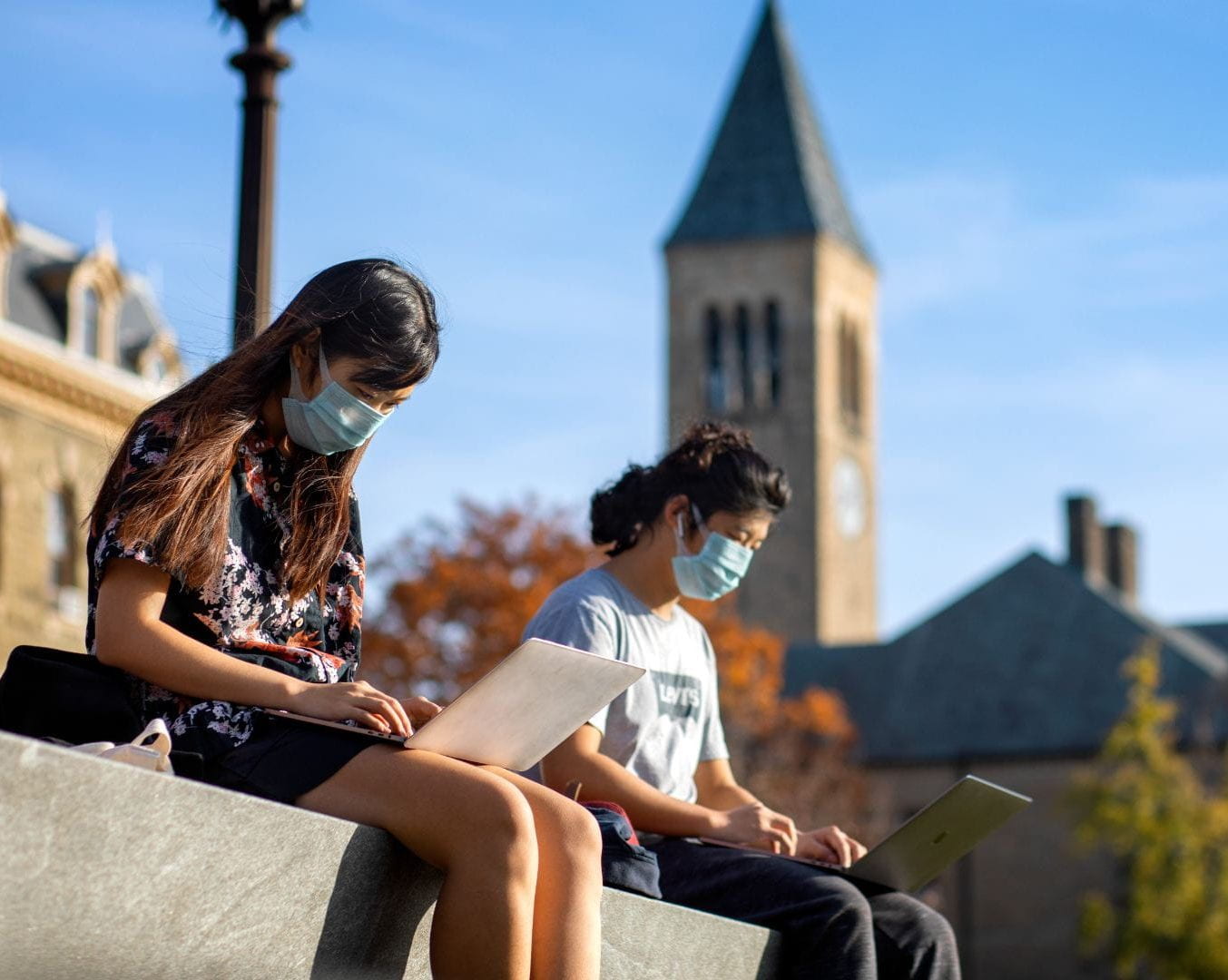Emergency Preparedness & Management
What is Emergency Preparedness & Management?

Disasters and other emergencies including major storms, droughts, wildfires, disease outbreaks, mass mortality events, and migrations of large numbers of people have profound effects on the physical and mental health of populations, property, and the environment. These events result in hundreds of billions of dollars of damage across the U.S. and around the world each year, and the impacts on health are equally severe. The frequency and severity of these emergencies are increasing due to climate change, population growth, global trade and travel, and widening inequity.
Recent experiences highlight the need for improved preparedness and management to reduce vulnerability to disasters and promote a resilient response. This field encompasses preparing for, mitigating against, responding to, and recovering from disasters. Students in this concentration will learn the drivers of emergencies and environmental disasters, and the organizational theories, policies, and practices that influence prevention, preparedness, and response. Students will assess and analyze disaster-related risks to community health, spatially map physical and socioeconomic vulnerabilities, anticipate how those risks and vulnerabilities will change over time, and use this understanding to inform response.
What We Offer
Our MPH Program prepares students in the Emergency Preparedness & Management concentration to manage risks and take action in times of crisis. Our courses are focused on helping students develop strong communication, teamwork, and leadership skills to work with and support public officials, public organizations, nonprofits, and other community organizations in jobs across the emergency management field (prevention, preparedness, response, mitigation, and recovery). Through coursework and engaged projects our students will learn to:

- Critically evaluate the theory and practice of public health emergency management to the political, social, economic, and cultural contexts of public health incidents
- Integrate principles of the Incident Command System (ICS) into an organization’s emergency planning or in the development of emergency exercises or drills
- Develop and implement culturally competent public messaging campaigns about preparing for specific hazards
- Develop event-specific information based on the principles of risk and/or emergency communication to inform the public, health care providers, and members of the response community
- Develop a climate adaptation intervention or plan to promote community resilience
Emergency Preparedness & Management Curriculum
In addition to the MPH core curriculum, students in the Emergency Preparedness & Management concentration will take the following concentration-specific courses:
Public Health and Emergency Management
Public health and environmental health emergencies have been increasing in severity and frequency as human populations expand into new regions, resources continue to be exploited, global temperatures increase and climates change. These result in loss of life and infrastructure, adverse social conditions, economic costs and environmental destruction.
This course will introduce students to the types, causes and impacts of different types of disasters and emergencies including infectious disease outbreaks, natural disasters (earthquakes, tsunamis, volcanoes, landslides, flooding, and major weather events) and their connections to climate change. Pandemics and bioterrorism will also be considered along with the psychological impact of disasters and terrorist attacks on victims, families and society. This introduction will assist students with understanding the basic principles of emergency management and how emergency management principles (threat and hazard identification, mitigation, preparedness, response and recovery) can be applied to public health incidents. Finally, the course will examine strategies to reduce risk, build community resilience and adaptation to climate change.
Disaster Policy and Politics
Policy requires politics: behind every positive or negative decision governments make, there are elected politicians, politically skilled officials, journalists, and other stakeholders. Understanding the world of politics is crucial to influencing and implementing policies- or even to understand the landscape in which any public health organization must operate. These political challenges are magnified during times of disasters, with new opportunities for competing incentives and things to go wrong. Indeed, it is impossible to understand disaster response outside of its political context. Understanding and influencing crucial strategic factors in public health emergency management requires understanding and influencing politics.
Crisis and Emergency Risk Communication
This course builds students’ ability to communicate with the public and media during a public health crisis or emergency and conduct disaster preparedness PR campaigns to maximize trust and engagement, and to minimize harm. To do so, the course will cover common strategies for communicating about hazards, as well as the major challenges common during disaster situations. The course will run concurrently with VTPEH 6184 Public Health Communications, and builds on that course by focusing on the unique challenges posed in disaster situations and in disaster-preparedness campaigns.
Over the semester, students will put skills into practice to create numerous public-communications media, including fact sheets, media advisories, public service announcements, and mock interviews. Students will also evaluate existing public campaigns and documents.
Vulnerability Analysis and Hazard Mitigation
The purpose of this course is to present students with data-based hazard mitigation experience. The course will cover core elements of the physical risks communities might face, aspects that might make communities more vulnerable or more resilient, Federal Emergency Management Agency (FEMA) state and local hazard mitigation plans, FEMA Hazard Mitigation Assistance (HMA), and hazard-evaluation frameworks. Student learning will be reinforced by writing a State Hazard Mitigation Plan (SHMP) and Hazard Mitigation Grant Program (HMGP) grant.
Over the semester, students will learn different tools and frameworks for evaluating the hazards faced by communities, while immediately applying that knowledge to write the major documents that govern hazard mitigation in the United States. At the end of the semester, students submit their HMGP grant proposal in response to a (mock) request for proposals. This is a significant written document that relates many public health core competencies with emergency management specific skills. Generating a significant document through this course serves as an Integrated Learning Experience for students in the Emergency Planning and Management Track.

Diverse Career Pathways
Graduates from the Emergency Preparedness & Management concentration can pursue a wide range of positions in government, public, and private sectors. Students will be prepared for multiple potential roles including:

- Planning, organizing, and coordinating activities for an all-hazard response to emergencies.
- Monitoring risks and disasters as they unfold to ensure timely communication with impacted health institutions and communities.
- Designing and implementing evidence-based primary and secondary prevention programs that address health behaviors and risk factors to reduce injury and mortality outcomes.
- Connecting people negatively affected by disasters or emergencies with resources that provide relief, access to healthcare, insurance, or other forms of support.
- Working as a liaison with government agencies and response partners and providing recommendations on humanitarian health and emergency management policies.
- Developing and maintaining an organization’s continuity of operation and recovery following a disaster and addressing potential gaps in the event of a depleted workforce, technology loss, or facility loss.
- Research, analysis, report writing, and other duties related to humanitarian assistance, and international aid and development programming.
Research and Engaged Learning
Want to learn more about what our Emergency Preparedness & Management students and faculty are working on? Check out the stories below!
‘Ground truth’: Flood monitoring tool gives NYS residents a voice



